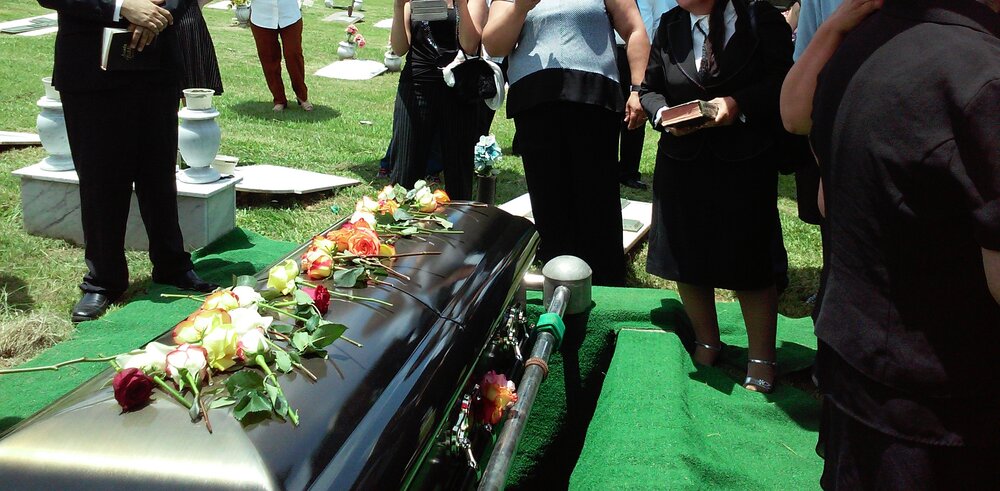Who Can Sue for a Wrongful Death?
When a family loses a loved one due to the negligence of another person or entity, the law affords them a right to recovery for what occurred. Often one of the most difficult initial determinations after a wrongful death has occurred, is determining who it is that may actually bring forth the wrongful death case.

In making that determination, wrongful death attorneys must be aware of their state’s approach to such inquiry. States may differ in their rules regarding who is entitled to file a wrongful death case.
MISSOURI
In the State of Missouri, the following individuals related to the deceased individual are permitted to bring forth a wrongful death case:
- Surviving spouses;
- Children; and
- Grandchildren
In addition, the sibling of a deceased individual may be permitted to bring a wrongful death lawsuit after a death when the deceased has no surviving spouses, children, and/or grandchildren.
The manner, or “order” in which those individuals have a right to bring forth a wrongful death case are be included as a party in a wrongful death case is another complex issue. It is important to consult with an attorney to make a determination of who may be permitted to bring forth a wrongful death case or who may join as a party.
KANSAS
In the State of Kansas, the determination for the individual permitted to bring a wrongful death case will be determined by the application of KSA.60-1902. This determination will focus on which individuals are deemed to be “heirs at law.” To make this determination of who qualifies as an “heir at law” pursuant to the Kansas statute, it is important to contact an attorney and ask for their legal input on whether such individual qualifies.
Elements of a Wrongful Death Case
To prove the legal elements of a Wrongful Death Case the plaintiff and their counsel must focus on four key components that have historically been important for purposes of proof in wrongful death cases. Those four elements are as followed:
- Duty. A Plaintiff must demonstrate that the Defendant, or tortfeasor, owed a duty to the deceased individual.
- Breach of The Duty. The Plaintiff must then prove that the Defendant, or tortfeasor, acted in a manner that would be considered a breach of the duty owed to the deceased individual.
- Causation. The Plaintiff bears the burden of proving that the breach of the duty caused the decedent’s death.
- Damages. In wrongful death cases, death is compensable damage that the plaintiff may seek compensation for.
Wrongful Death Time Limitations
In Missouri, the statute of limitations for a wrongful death claim is generally three years. In Piskorski v. Larice 70 S.W.3d 573, 574 (Mo. Ct. App. 2002), the Missouri Court of Appeals addressed such limitation and the timing of when the cause of action is brought forth:
A wrongful death action under section 537.080, RSMo 2000 accrued to the statutory beneficiaries "when the death occurs." Section 537.100, RSMo 2000 provided that "[e]very action instituted under section 537.080 shall be commenced within three years after the cause of action shall accrue."
Types of Wrongful Death Cases
Wrongful death cases essentially arise as an elevated form of other personal injury cases. While the legal framework that will be applied to wrongful death cases is different, the contexts from which they arise can be similar. Claims bought for wrongful death damages may arise from:
- Car accidents;
- Trucking Accidents;
- Slip and Falls;
- Premises Liability;
- Medical Malpractice;
- Commercial Motor Vehicle Injuries;
- Drunk Driving;
- Brain injuries;
- Motorcycle Accidents; and
- Construction accidents.
Wrongful Death Case Keys
Given the elevated damages and risk of exposure to the defendant, wrongful death cases are often heavily contested legal proceedings. With such high stakes, both sides to the case will regularly employ proactive tactics and strategy to ensure that their case is developing properly. An attorney representing a wrongful death plaintiff must consider numerous measure to ensure that the case trajectory is correct at the onset of the case. Some basic things that can be done would include:
- Submitting a preservation letter to the defendant, tortfeasor, and or any other property that may have possession or control of evidence and information;
- Regularly requesting updates as to the findings of third party investigations such as police departments and other state agencies.
- Conducting research into the background of the defendant or tortfeasor;
- Investigating any other instances similar to that which led to the wrongful death in a similar location or context;
- Compiling introductory information from witnesses and others that may have been close to the case.
Call Fletcher Law Today For A Free Consultation On Your Wrongful Death Case
If you are someone that may be entitled to bring forth a wrongful death claim, it is important that you be proactive about your approach to the legal case that may follow. The legal team at Fletcher Law has the experience and skill needed to handle wrongful death cases. Call us today at 816-631-2868 so that we can evaluate your case.